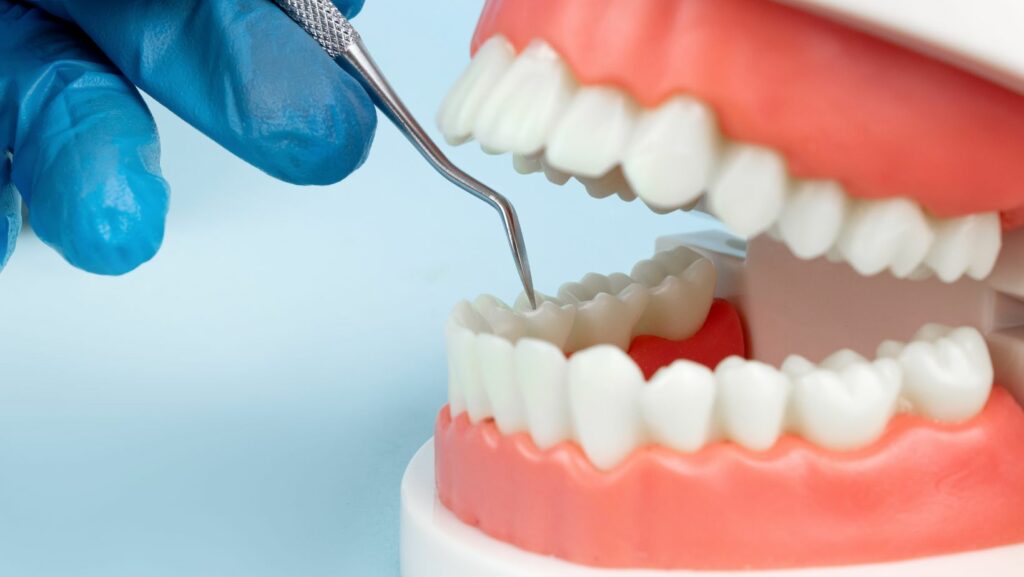
Implant-supported dentures represent a revolutionary advancement in dental technology, offering a robust alternative to traditional dentures. Unlike standard dentures that rest on the gums, implant-supported dentures are anchored onto implants fixed into the jawbone, providing a secure and stable foundation. This integration not only enhances the functionality of the dentures but also helps preserve jawbone integrity and improve overall oral health. As a result, patients experience fewer issues related to slipping or discomfort, leading to a significant improvement in their quality of life.
This article delves deep into the world of implant-supported dentures, exploring the various types available and the benefits they offer over traditional dentures. On top of that, we will walk you through the entire process of getting implant-supported dentures – from the initial consultation to the surgical steps and beyond. By the end of this guide, you will have a comprehensive understanding of why implant-supported dentures might be the best choice for restoring your smile.
Key Reasons to Consider Implant-Supported Dentures
Implant-supported dentures provide multiple advantages over traditional dentures, making them a preferred choice for many seeking a reliable and comfortable solution to tooth loss. To give you a better idea, below is a table outlining the key reasons to consider this advanced dental option, providing a clear and concise comparison to help you understand the benefits:
| Feature | Implant-Supported Dentures | Traditional Dentures |
| Stability | High: Anchored directly to the jawbone; does not slip or move | Low: May slip or shift, causing discomfort |
| Jawbone Health | Preserves jawbone and prevents bone loss | Often leads to bone deterioration over time |
| Comfort | More comfortable, tailored fit | It can cause irritation and sore spots |
| Functionality | Enhanced chewing and speaking capabilities | Limited, especially with hard or sticky foods |
| Aesthetic | Natural appearance; maintains facial structure | It may not appear as natural; it can alter face shape |
| Longevity | Durable and long-lasting with proper care | Requires adjustments or replacements over time |
The Implant Placement Process
The process of getting implant-supported dentures involves a series of precise steps designed to ensure the optimal fit and functionality of your new teeth. Here is a detailed look at each major phase in the implant placement process:
Initial Consultation and Oral Health Assessment
Your journey starts with a first consultation where your dentist evaluates your oral health and suitability for implants. This assessment typically includes a comprehensive examination of your teeth, gums, and jawbone. Dental X-rays or 3D imaging are often used to assess bone density and to plan the placement of the implants accurately.
Surgical Implantation of the Posts
During this crucial stage, titanium posts are surgically placed into the jawbone. This procedure is typically conducted under local anesthesia to minimize discomfort.
The number of implants varies based on the kind of denture and the particular requirements of the patient. Post-surgery, there is a healing period where the implants must integrate with the bone, a process known as osseointegration.
Healing and Osseointegration
After the implants are placed, a critical healing period follows, lasting several months. During this time, the titanium posts fuse with the jawbone, generating a sturdy foundation for the dentures. You may be provided with temporary dentures to use during this phase to help you eat and speak normally without exerting pressure on the healing implants.
Customization and Fitting of the Dentures
The moment the implants have completely integrated with the jawbone, the next step is the creation and fitting of the custom dentures. Impressions of your mouth are taken to craft dentures that fit snugly and look natural. This phase may include several fittings to ensure that the dentures are comfortable and aesthetically pleasing.
Final Adjustments and Follow-Up Care
After the dentures are fitted, final adjustments are made to ensure optimal comfort and functionality.

Your dentist will also arrange follow-up appointments to examine the implants and dentures, making any necessary adjustments to maintain fit and comfort over time.
The Bottom Line
All in all, implant-supported dentures offer a transformative solution for those looking to overcome the challenges of conventional dentures. They provide a secure, stable fit that enhances the ability to eat, speak, and smile with confidence. In addition, the preservation of jawbone health and improvement in facial aesthetics are compelling reasons to consider this modern dental treatment.
Thus, if you are considering dental restoration, implant-supported dentures could very well be your pathway to a renewed smile and improved oral health. On that note, we encourage you to discuss this option with your dentist to determine if it is the right choice for your individual needs and lifestyle.












